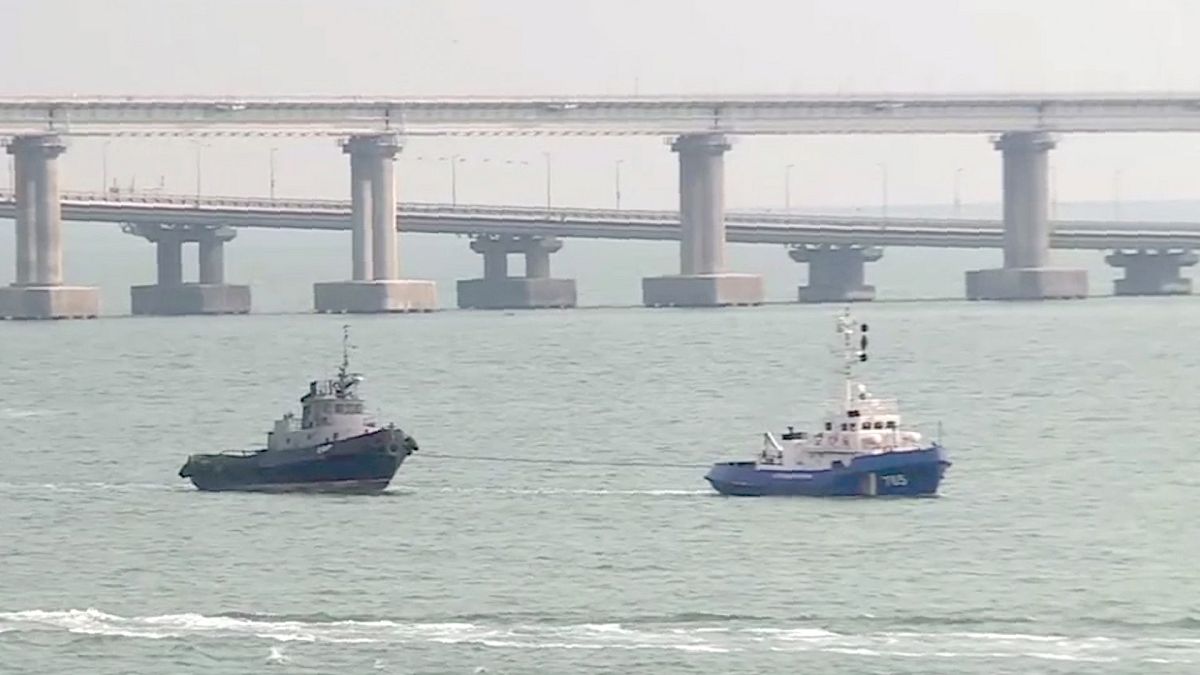The Permanent Court of Arbitration has opened hearings regarding a €3.15-billion, 19-kilometre bridge built by Russia across the Kerch Strait after the annexation of Crimea in 2014. Ukraine’s legal representatives argue that Russia constructed the bridge to control Ukraine’s Sea of Azov. The bridge serves as a barrier to international shipping while allowing small Russian vessels access. Ukraine alleges that Russia’s actions are illegal and seeks compensation for the breach of a UN maritime treaty.
The ongoing arbitration case at the Hague is part of a series of international legal disputes between Russia and Ukraine arising from Russia’s 2014 annexation of Crimea and invasion of Ukraine in 2022. Russia is accused of attempting to take control of the strategically important Sea of Azov and Kerch Strait by building the bridge, which serves as a gateway to Southern Ukraine. Ukrainian representative Anton Korynevych argued that the bridge is unlawful and should be dismantled. The arbitration panel will deliberate on the jurisdiction of the case before addressing Ukraine’s claims.
Ukraine initiated the arbitration case in 2016, accusing Russia of breaching the UN maritime treaty by constructing the bridge, restricting Ukrainian fishermen access to traditional fishing grounds, damaging the environment, and plundering underwater archaeological sites. Russia, however, maintains that the Sea of Azov and Kerch Strait are “internal waters” not covered by the UN Convention on the Law of the Sea. Russian Agent Gennady Kuzmin dismissed Ukraine’s accusations as groundless and insisted that the court should dismiss Ukraine’s claims if it determines jurisdiction.
Following the opening statements by both parties, the arbitration panel will continue the hearings behind closed doors for several days. The final ruling in the case could potentially take years to be delivered. The outcome of the arbitration will have significant implications for the control of the Sea of Azov and Kerch Strait, with Ukraine seeking to challenge Russia’s actions in constructing the bridge. The legal battle reflects the ongoing tensions between the two countries stemming from Russia’s annexation of Crimea and ongoing conflict in Ukraine.









